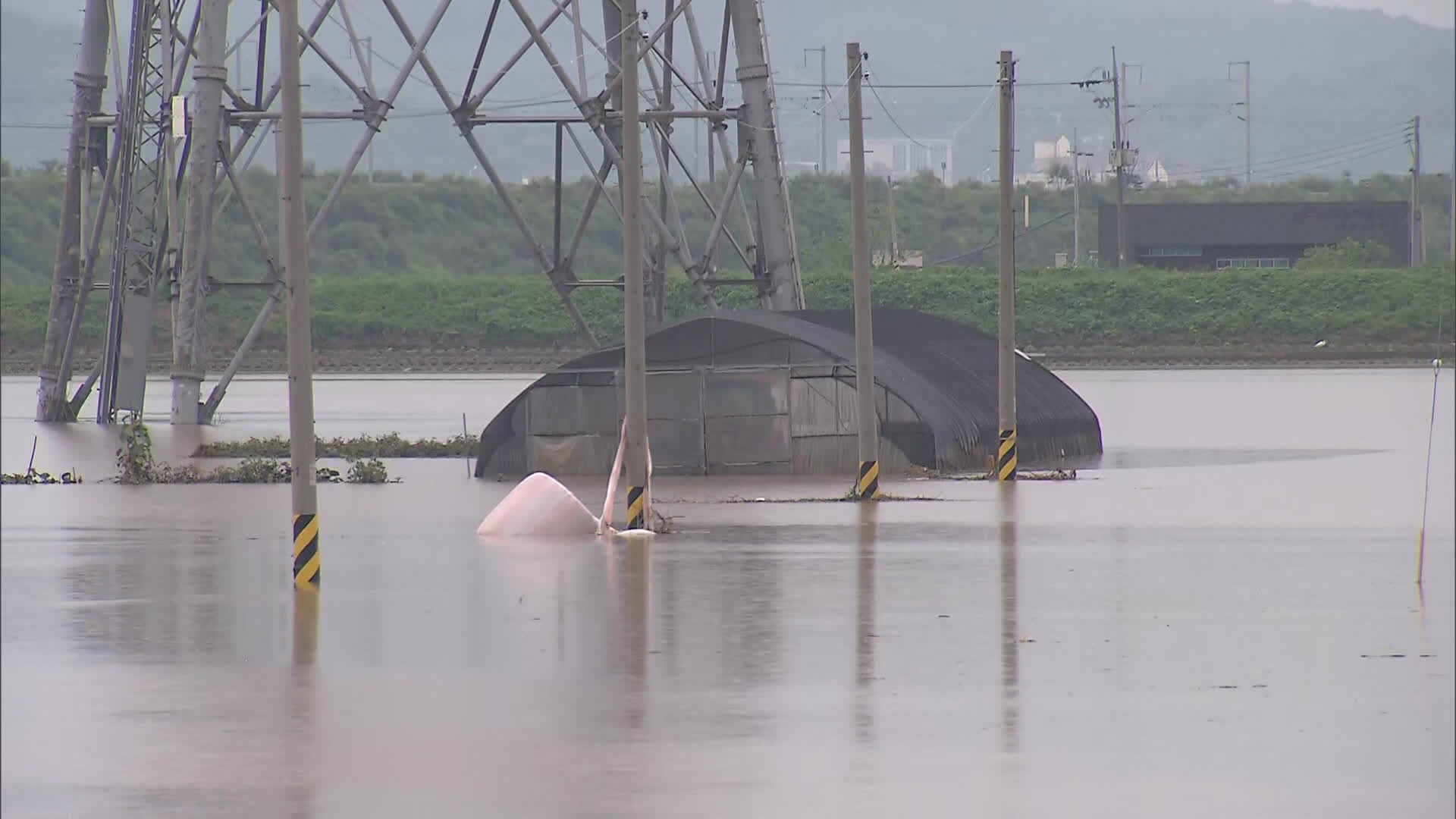BUMPY ROAD IN ACHIEVING ZERO CARBON
입력 2021.04.23 (15:18)
수정 2021.04.23 (16:45)
읽어주기 기능은 크롬기반의
브라우저에서만 사용하실 수 있습니다.
[Anchor Lead]
A key topic of Thursday’s virtual climate summit was carbon emissions. As President Moon Jae-in also mentioned, South Korea has declared to achieve zero carbon footprint by 2050 but it still remains the sixth largest producer in the world.
[Pkg]
How much carbon do I emit? Washing up and having breakfast in the morning already involves a considerable amount of electricity usage. The 16 kilometer drive to work produces an additional 1.6 kilograms of carbon. Lunch also contributes to carbon emission. A single beef hamburger steak side dish equals 4 kilograms of carbon. Having lunch produces more than double the amount of carbon used in the entire morning. All in all, for the whole day, one individual’s carbon emission reaches 13 kilograms. For a year, it adds up to about 5.2 tons. As of 2018, South Korea’s carbon footprint stood at 720 million tons. This breaks down to per capita emission of 14.1 tons. But there is a limit to reducing carbon emissions by individuals in daily life.
[Soundbite] An Jun-gwan(Climate change consulting firm) : "The per capita figure is up mainly because emission by industries has increased."
How is the government policy to reach zero emissions by the year 2050 being implemented? The general rule is to drastically scale back coal power generation, but ironically, a state plan on energy facilities indicates the construction of more coal power plants for 30 years of operation.
[Soundbite] Yun Se-jong(Director, Solutions for Our Climate) : "It’s concerning that Korea has yet to present concrete policy goals on phasing out coal."
Structural changes to the staple sectors of steel and petrochemicals, which are major producers of carbon, are also being made slowly. While European nations reduced carbon emissions by 23% in the past 30 years, South Korea’s footprint increased by more than 140% during the same period.
[Soundbite] Cho Chun-ho(Ex-chief, Nat’l Institute of Meteorological Sciences) : "Korea took the complete opposite path. It is arguably the furthest behind in transitioning to renewable energies among OECD members."
The government vowed to bring that level down by 24% over the next ten years. But at the current pace, carbon neutrality is more likely to remain a declaration than an attainable goal.
A key topic of Thursday’s virtual climate summit was carbon emissions. As President Moon Jae-in also mentioned, South Korea has declared to achieve zero carbon footprint by 2050 but it still remains the sixth largest producer in the world.
[Pkg]
How much carbon do I emit? Washing up and having breakfast in the morning already involves a considerable amount of electricity usage. The 16 kilometer drive to work produces an additional 1.6 kilograms of carbon. Lunch also contributes to carbon emission. A single beef hamburger steak side dish equals 4 kilograms of carbon. Having lunch produces more than double the amount of carbon used in the entire morning. All in all, for the whole day, one individual’s carbon emission reaches 13 kilograms. For a year, it adds up to about 5.2 tons. As of 2018, South Korea’s carbon footprint stood at 720 million tons. This breaks down to per capita emission of 14.1 tons. But there is a limit to reducing carbon emissions by individuals in daily life.
[Soundbite] An Jun-gwan(Climate change consulting firm) : "The per capita figure is up mainly because emission by industries has increased."
How is the government policy to reach zero emissions by the year 2050 being implemented? The general rule is to drastically scale back coal power generation, but ironically, a state plan on energy facilities indicates the construction of more coal power plants for 30 years of operation.
[Soundbite] Yun Se-jong(Director, Solutions for Our Climate) : "It’s concerning that Korea has yet to present concrete policy goals on phasing out coal."
Structural changes to the staple sectors of steel and petrochemicals, which are major producers of carbon, are also being made slowly. While European nations reduced carbon emissions by 23% in the past 30 years, South Korea’s footprint increased by more than 140% during the same period.
[Soundbite] Cho Chun-ho(Ex-chief, Nat’l Institute of Meteorological Sciences) : "Korea took the complete opposite path. It is arguably the furthest behind in transitioning to renewable energies among OECD members."
The government vowed to bring that level down by 24% over the next ten years. But at the current pace, carbon neutrality is more likely to remain a declaration than an attainable goal.
■ 제보하기
▷ 카카오톡 : 'KBS제보' 검색, 채널 추가
▷ 전화 : 02-781-1234, 4444
▷ 이메일 : kbs1234@kbs.co.kr
▷ 유튜브, 네이버, 카카오에서도 KBS뉴스를 구독해주세요!
- BUMPY ROAD IN ACHIEVING ZERO CARBON
-
- 입력 2021-04-23 15:18:18
- 수정2021-04-23 16:45:21

[Anchor Lead]
A key topic of Thursday’s virtual climate summit was carbon emissions. As President Moon Jae-in also mentioned, South Korea has declared to achieve zero carbon footprint by 2050 but it still remains the sixth largest producer in the world.
[Pkg]
How much carbon do I emit? Washing up and having breakfast in the morning already involves a considerable amount of electricity usage. The 16 kilometer drive to work produces an additional 1.6 kilograms of carbon. Lunch also contributes to carbon emission. A single beef hamburger steak side dish equals 4 kilograms of carbon. Having lunch produces more than double the amount of carbon used in the entire morning. All in all, for the whole day, one individual’s carbon emission reaches 13 kilograms. For a year, it adds up to about 5.2 tons. As of 2018, South Korea’s carbon footprint stood at 720 million tons. This breaks down to per capita emission of 14.1 tons. But there is a limit to reducing carbon emissions by individuals in daily life.
[Soundbite] An Jun-gwan(Climate change consulting firm) : "The per capita figure is up mainly because emission by industries has increased."
How is the government policy to reach zero emissions by the year 2050 being implemented? The general rule is to drastically scale back coal power generation, but ironically, a state plan on energy facilities indicates the construction of more coal power plants for 30 years of operation.
[Soundbite] Yun Se-jong(Director, Solutions for Our Climate) : "It’s concerning that Korea has yet to present concrete policy goals on phasing out coal."
Structural changes to the staple sectors of steel and petrochemicals, which are major producers of carbon, are also being made slowly. While European nations reduced carbon emissions by 23% in the past 30 years, South Korea’s footprint increased by more than 140% during the same period.
[Soundbite] Cho Chun-ho(Ex-chief, Nat’l Institute of Meteorological Sciences) : "Korea took the complete opposite path. It is arguably the furthest behind in transitioning to renewable energies among OECD members."
The government vowed to bring that level down by 24% over the next ten years. But at the current pace, carbon neutrality is more likely to remain a declaration than an attainable goal.
A key topic of Thursday’s virtual climate summit was carbon emissions. As President Moon Jae-in also mentioned, South Korea has declared to achieve zero carbon footprint by 2050 but it still remains the sixth largest producer in the world.
[Pkg]
How much carbon do I emit? Washing up and having breakfast in the morning already involves a considerable amount of electricity usage. The 16 kilometer drive to work produces an additional 1.6 kilograms of carbon. Lunch also contributes to carbon emission. A single beef hamburger steak side dish equals 4 kilograms of carbon. Having lunch produces more than double the amount of carbon used in the entire morning. All in all, for the whole day, one individual’s carbon emission reaches 13 kilograms. For a year, it adds up to about 5.2 tons. As of 2018, South Korea’s carbon footprint stood at 720 million tons. This breaks down to per capita emission of 14.1 tons. But there is a limit to reducing carbon emissions by individuals in daily life.
[Soundbite] An Jun-gwan(Climate change consulting firm) : "The per capita figure is up mainly because emission by industries has increased."
How is the government policy to reach zero emissions by the year 2050 being implemented? The general rule is to drastically scale back coal power generation, but ironically, a state plan on energy facilities indicates the construction of more coal power plants for 30 years of operation.
[Soundbite] Yun Se-jong(Director, Solutions for Our Climate) : "It’s concerning that Korea has yet to present concrete policy goals on phasing out coal."
Structural changes to the staple sectors of steel and petrochemicals, which are major producers of carbon, are also being made slowly. While European nations reduced carbon emissions by 23% in the past 30 years, South Korea’s footprint increased by more than 140% during the same period.
[Soundbite] Cho Chun-ho(Ex-chief, Nat’l Institute of Meteorological Sciences) : "Korea took the complete opposite path. It is arguably the furthest behind in transitioning to renewable energies among OECD members."
The government vowed to bring that level down by 24% over the next ten years. But at the current pace, carbon neutrality is more likely to remain a declaration than an attainable goal.
이 기사가 좋으셨다면
-
좋아요
0
-
응원해요
0
-
후속 원해요
0

















이 기사에 대한 의견을 남겨주세요.